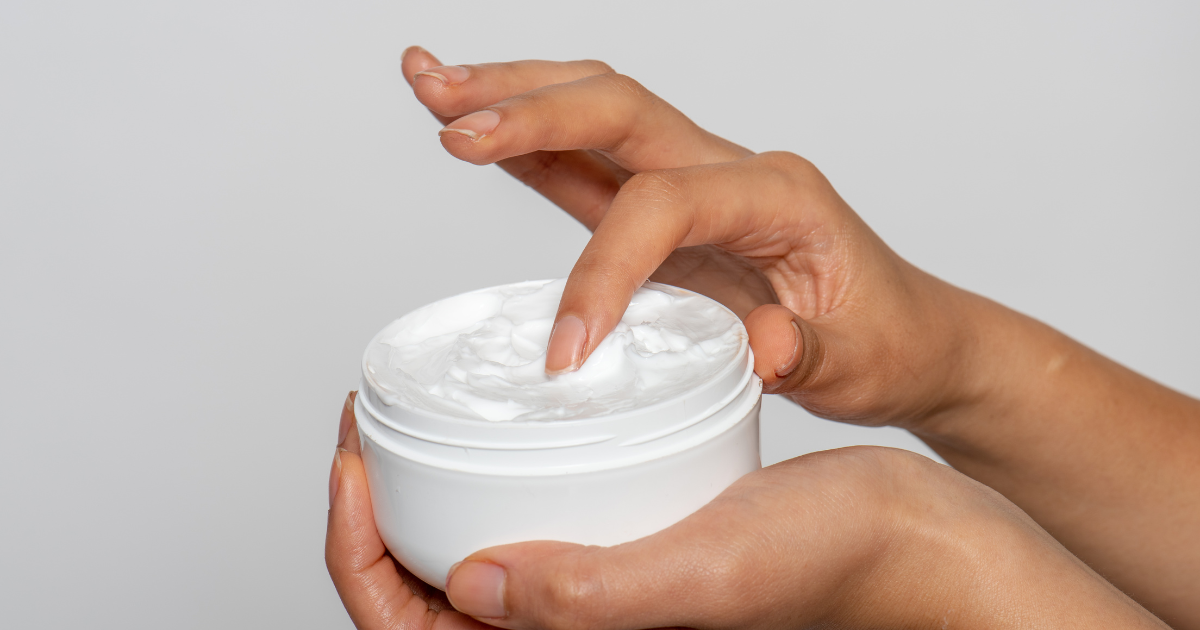Cosmetics and masks by skin care type. Follow our skin care tips to get an attractive look.

Everyone wants to have glowing skin. And for that, I want regular care and maintenance. Usually, our skin starts to undergo various changes in our teenage years. So you should start taking care of your skin from then on. And that care must be taken according to the skin type. skin care Because not all products suit all skin types. And today’s article is to give you some idea about that. So let’s know which product to use on which type of skin.
You may have questions about related products. Where can I get it? Are you buying genuine or counterfeit products? How much is the price? Dressing up for your convenience has made the entire process easier with SAPPHIRE.skin care To learn about the product and to buy it, click on the given links:
skin care Mix one teaspoon of Multani soil and rose water to make a paste and apply it to the face. Wash when dry. This mask controls the oiliness of the skin.
Mix cucumber juice, lemon juice, and honey and apply it to the face. Wash off after 20 minutes. It restores radiance to the skin and smooths it.
Nothing is more opulent than giving your skin a revitalizing face mask when you need a little pick-me-up. Not to mention, the wide range of jelly, peel-off, and clay makes it a visually appealing playground that you want to swing and slide on.
Nevertheless, with so many different formulations available, it begs the question, which face mask is best for my skin type? We took your question, provided an answer, and tested 33.
Additionally, we worked with a board-certified dermatologist to address all of your urgent queries in our FAQ area, including what ingredients to look for and how best to apply each type.
According to Marina Peredo, MD, an associate clinical professor at Mount Sinai Hospital with 31 years of experience and a board-certified dermatologist with a focus on aesthetic dermatology, “Face masks help cleanse, moisturize, and nourish the skin.” “Different face masks can help with different skin concerns; some are nourishing, some can help with hyperpigmentation, and some can help with acne.”
Additionally, face masks have a longer contact time with the skin than cleansers, which may provide an additional advantage.
Oily skin:
Masks made of clay or charcoal are great for those with oily skin since they absorb extra oil. Additionally, charcoal, which is useful for unclogging pores, is.
Oily skin causes
There are numerous causes of oily skin. While some things are unchangeable, others are. For instance, some people may inherit oily skin from their parents.
Hormonal changes brought on by menopause, pregnancy, or puberty are some other explanations.
Some drugs, like those that alter hormone levels; some medical problems, like female polycystic ovarian syndrome (PCOS)
A study conducted by Trusted Source on young women in China discovered a link between having oilier skin, greater body weight, and frequent use of dairy or sweets.
signs of greasy skin
The following are signs of oily skin: a shiny appearance; large, noticeable pores on the skin; plugged pores; and blackheads.
sporadic or chronic acne
When wearing makeup, people with oily skin may also notice that the makeup combines with their sebum, changing its substance.
Oily skin routine
Below is a skincare routine that may help reduce oiliness.
-
Apply a mild cleanser
Using a cleanser to wash the skin helps get rid of extra oil. On the other hand, applying abrasive cleansers that remove all oil from the skin may have the reverse effect. A cleanser that is very drying could make the skin generate more oil in an attempt to make up for it.
Therefore, it’s best to find a middle ground between getting rid of oil and staying hydrated. Seek a cleanser with the same level of acidity as the skin—that is, one that is pH-balanced. Usually, this occurs between Trusted Source
Moreover, harsh chemicals and soaps like sodium lauryl sulfate and alcohol should not be included in face cleansers.
2. Use a toner
Toners are liquids used for post-cleansing applications. They may benefit oily skin due to a number of their qualities. Toners can be, for instance, exfoliating (removing dead skin cells); astringent (tightening the skin); humectant (drawing moisture to the skin without adding oil);
Every one of these has benefits and drawbacks of their own. For instance, acids like salicylic acid and alpha-hydroxy acids are present in exfoliating toners. These acids can make some skin types more sensitive to UV rays and cause irritation. Nonetheless, they can aid with acne and smooth the skin’s surface.
Astringents cause the skin’s tissue to tighten by removing moisture from it. This can be drying, even though it might make pores appear smaller.
Before using a new product on their face, people should patch test it on a small section of skin to see how it reacts to them.
3. Apply a moisturizer
Because they think their skin will appear gritty, many people with oily skin avoid using moisturizers. But not every moisturizer is thick or oily. Certain products make the skin feel moisturized and supple by adding moisture without using oil.
Those with oily skin might seek moisturizers that include these ingredients to locate one that works for them:
- substances that are not oily, like ceramides or caprylic triglycerides, niacinamide, or vitamin B3.
- humectants, like glycerin, hyaluronic acid, or aloe vera
A small 2021 study of 40 females ages 18–30 found that a 3% niacinamide gel cream may help to control oil production, but more research in a larger population is necessary to confirm these results.
4. Wear sunscreen
If spending time outside, people with exposed skin of all skin types should wear SPF protection, especially if they use retinoids or acid exfoliants as acne treatments.
At least SPF 30 is advised by the American Academy of Dermatology Association (AAD). Seek out oil-free and noncomedogenic sunscreens.
5. Use blotting papers
Portable, absorbent paper sheets known as “blotting papers” are used to remove oil from the skin. They can lessen shine throughout the day, but they won’t stop sebum production.
Don’t rub; instead, gently dab them onto the skin to avoid spreading the oil further.
Oily skin treatments
There may be therapies for extremely oily skin that result in acne or underlying medical conditions.
Reliable Previous study sources highlight several options, such as:
retinoids, topical niacinamide, certain hormonal birth control methods, and spironolactone, a medication that physicians occasionally prescribe for PCOS
For a given case, a dermatologist can offer advice on the best course of action.
Oily skin prevention
Oily skin might sometimes be unavoidable. Finding and sticking to a regular skin care regimen that works is one of the best methods to treat oily skin.
It can be tempting to cover up oily skin with cosmetics when it first appears. Nevertheless, some products—especially those with an oil base—may exacerbate symptoms or block pores.
Some people feel their skin responds best to wearing no makeup, while others find that water-based makeup is a preferable alternative.
Anecdotally, some people claim that cutting back on oiliness can be achieved by altering their diet. A little modest research indicates that this might be the case.
For instance, a 2019 study including 84 Korean people, aged 19 to 37, discovered a correlation between increased sebum production and a diet heavier in meats, dairy, and alcohol. Further research is required to validate these findings.
Find out more about whether eating adjustments can assist with acne.
Summary
Excess sebum, the waxy material that envelops and shields the skin from moisture, is present in oily skin. Although sebum is necessary for healthy skin, too much of it can cause acne, plugged pores, and a glossy appearance.
Oiliness can be controlled and eventually reduced with a regular skin care regimen. A physician can offer advice on how to address oiliness if there is an underlying medical reason for it.
2. skin care; Dry skin
skin care Dry skin is usually dull, thin, and rough. When the oil glands cannot produce enough oil, the skin becomes dry. One of the downsides of dry skin is that it tends to show signs of aging very quickly. But there is no reason to worry. Dry skin can be made smooth and supple with proper care and maintenance. So the first thing to do is to drink 8–10 glasses of water a day to keep the skin hydrated. skin care

skin care Besides keeping the skin hydrated, water flushes out various waste materials from the body. Clean the face with a good cleanser/face wash. Various face washes for dry skin are available on the market. Wash your face twice a day. It can be before going to sleep or after waking up in the morning. skin care The next step is to use a good moisturizer. This step is the most important. Because the primary requirement of dry skin is proper moisturization, and when or how much to use, your skin will tell you. Use moisturizer whenever the skin feels tight or dry. Also, apply moisturizer every time you wash your face. care
To help feed and hydrate the skin, look for a face mask containing hyaluronic acid, honey, glycerin, shea butter, or ceramides. Any combination of components, or any one of the ingredients alone, can be used.
Face wash-
The Body Shop’s Vitamin E Cream Cleanser
Himalaya Herbals Gentle Hydrating Face Wash
Lakme Gentle and Soft Deep Pore Cleanser
Moisturizer-
The Bodyshop’s Vitamin E moisturizer
Olay Natural White Day Cream
Face Pack-
skin careTake a piece of ripe papaya and apply the paste to the face. Wash when dry. This is a very good fruit mask for dry skin.
Mix 2 teaspoons of honey, 1 egg white, 2 teaspoons of glycerine, and 2 teaspoons of flour well, and apply the paste to your face. Leave it for 15 minutes and wash it off. The skin will be soft and glowing. care
3. Sensitive skin
skin care People with sensitive skin are always in trouble. I don’t know when the skin reacts to a product. This type of skin is highly reactive to certain products or ingredients. Sensitive skin is usually red and prone to allergies. Individuals may have sensitivities to different products. One person’s skin may react to a product, another’s may not. Therefore, this skin needs special care for various problems with sensitive skin.
To calm the skin, look for face masks that contain hyaluronic acid, aloe, chamomile, green tea, niacinamide, or cucumber extract. Cucumber extract has a cooling effect. The use of face masks containing alcohol or scent should be avoided, as these substances may irritate delicate skin.

skin care These skin problems can be managed by using the right products. According to various dermatologists, deodorant soaps or heavily scented soaps contain strong detergents that should never be used on sensitive skin. So while buying a cleanser or face wash, you have to look at these things and buy a different face wash for sensitive skin. skin care Look for moisturizers that are low in ingredients and have mild or no fragrance. Avoid products that contain antibacterial properties, alcohol, retinoids, or alpha hydroxy acids, and use sunscreen before going outside. care
Face wash-
Cetaphil gentle cleanser for sensitive skin
The Bodyshop’s Aloe Calming Facial Cleanser
Moisturizer-
Neutrogena moisturizer for sensitive skin
The Bodyshop’s Aloe Soothing Moisturizer
Face Pack-
Mix half a banana, 1 teaspoon of sour yogurt, and egg white and apply it to your face. Leave it for 15 minutes and wash it off.
Make a paste by mixing a boiled carrot and 2 teaspoons of honey. Apply it to the face and wait till it dries. Wash off with water when dry.
Clay and charcoal masks
Clay masks and charcoal masks are suitable for oily skin, combination skin, or shiny T-zones. This is because both clay and charcoal absorb excess oil from the skin’s surface. Charcoal also has the unique ability to gently draw out dirt from congested pores. A well-formulated mask will leave the skin shine-free, but not dry or tight. Our Skin Balancing Mask is a classic clay mask that helps to absorb excess oil and decongest pores, and our Pore Clarifying Charcoal Mask is a premium charcoal-gel mask that balances the skin and works like a magnet to attract dirt from pores.
Brightening masks
Brightening masks are ideal for those with dull and dry skin or anyone suffering from discoloration and uneven skin tone. A good mask in this category should contain powerful brightening ingredients like arbutin, vitamin C, bearberry extract, and niacinamide. These ingredients improve uneven skin tone and leave your skin glowing. The Radiance Renewal Mask is a sleep mask that contains a blend of brightening ingredients that will leave your skin plump, radiant, and smooth. care
Sheet masks
Sheet masks are usually made from some kind of paper or cotton that is saturated with effective ingredients. There are lots of different sheet masks to suit different skin types, depending on the ingredients they contain. You leave the mask on your face for a while so that the ingredients can sink into your skin. A sheet mask is fun to use, but it doesn’t necessarily provide an increased benefit compared to a traditional mask. care

Peel off masks
A good rule of thumb for any mask you choose is to avoid ones that contain irritating ingredients like alcohol, mint, menthol, eucalyptus, camphor, and fragrances (natural and synthetic).care
Combination: Masks containing clay or charcoal are especially beneficial for mixed skin types as they can reduce oil production in the T-zone. Salicylic acid can help with acne, while hyaluronic acid is also beneficial for moisturizing.
Acne-prone: Seek out a salicylic acid face mask to help clear clogged pores and combat acne. To clear pores, clay, and charcoal masks are especially beneficial for skin prone to acne. Because of its antibacterial qualities, benzoyl peroxide is also beneficial for skin that is prone to acne.
An overview of our skin types
We knew we had to work together on this months-long study as we are both commerce reporters and are interested in skincare, especially as we have combination and oily skin and dry and sensitive skin, respectively.
Ruby: Like most people, I have a complex relationship with my skin. I have trouble with hormonal acne and texture during this time of the month. My skin type is likewise a combination, so when I apply a thick moisturizer, it might either be excessively greasy or dry and flaky. Nonetheless, my skin tone is fair and radiant.
Victoria: My skin has always been sensitive (one component that doesn’t agree with me can instantly produce a breakout), even though I don’t battle with acne-prone skin. It takes careful consideration to select a nice face mask because I have some dry, eczema-like areas as well.
Take a look at our initial thoughts and long-term testing notes to help elevate your skincare regimen to a state of pleasure.





